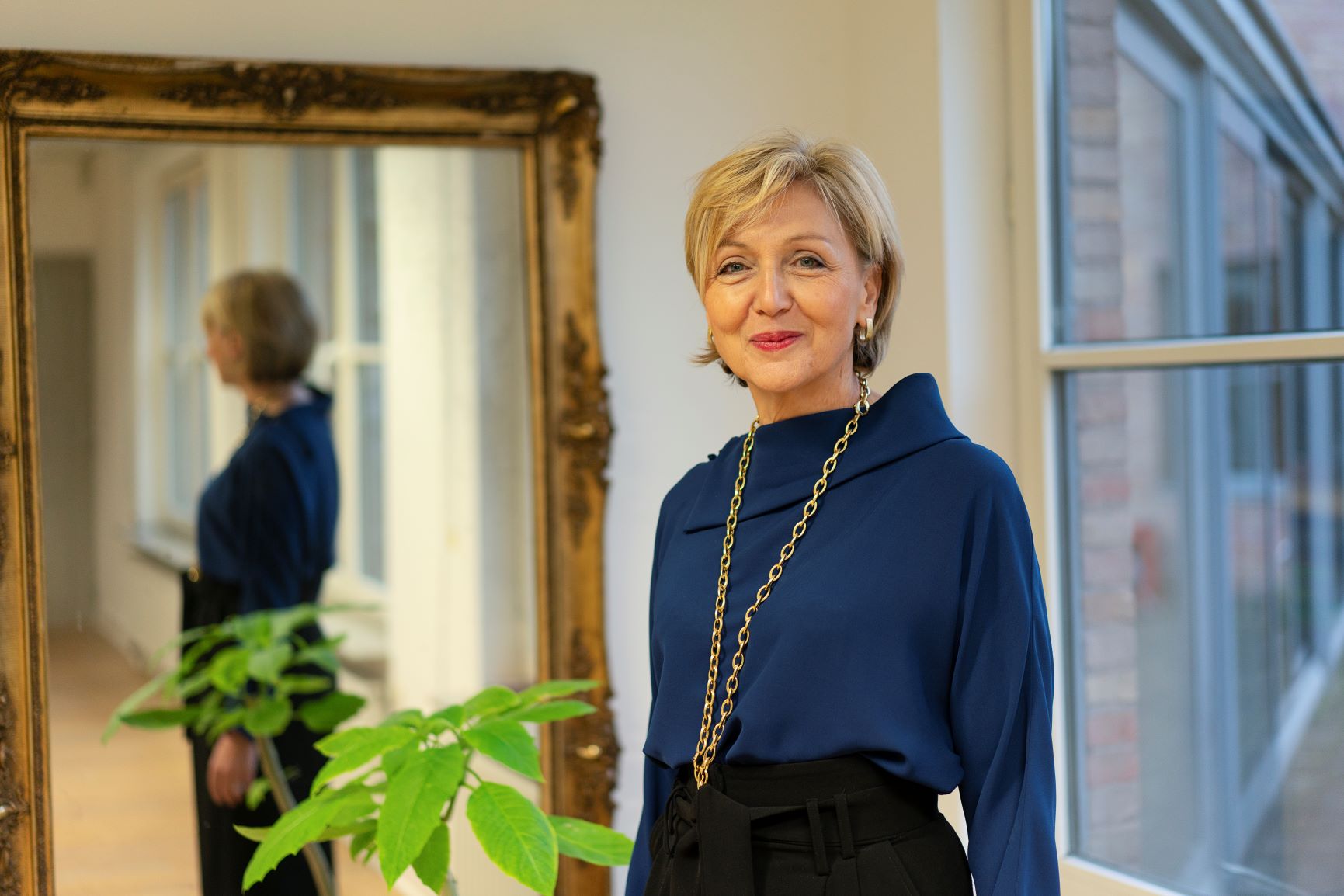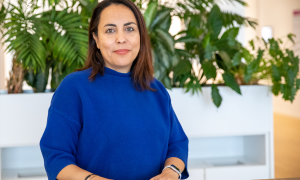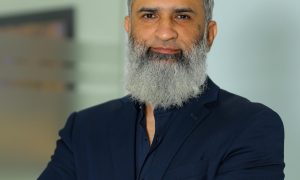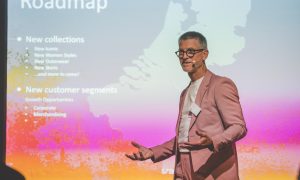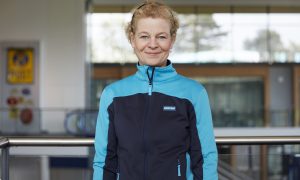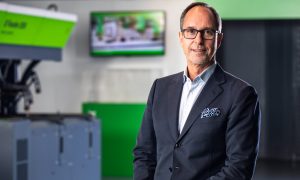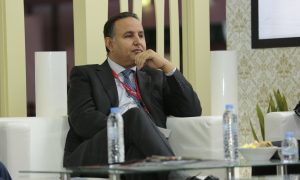Operating in a sector transformed by the digital revolution, twenty-five-year-old translation and localization company Lionbridge not only survived the onslaught of technology but turned it to its advantage, becoming a global player. We spoke to Lionbridge’s Managing Director of Europe Corinne Saunders to talk about adaptation in the face of great change.
The digital revolution has affected all commercial sectors, but perhaps no niche has been more impacted than translation services. Online tools such as Babelfish (launched in 1995) or Google Translate (2006) shifted the landscape, although results were initially often erratic. Over time, with the innovation of smartphone apps and artificial intelligence (AI) technology, machine translation (MT) has become ever more accurate and reliable. Unlike human translation, it is also instantaneous.
Companies relying on translation services as their main revenue stream, therefore, faced a challenge. Those able to adjust to the new landscape would endure, while others would fade away. With 6000 employees working from fifty offices across four continents and expertise in 350 languages, Massachusetts-based market leader Lionbridge prides itself on its response to ever-evolving tech.
Current MD of the EMEA region Corinne Saunders joined Lionbridge in January 2020, following an executive career spanning two decades. Although her background was broad and varied, the world of translation services was relatively new to her.
“I came into Lionbridge as an outsider of this industry,” she explains. “But my specialty had been mainly in scaling up international businesses. At Lionbridge, I immediately saw an opportunity for growth in Europe. In particular, I thought there was a chance to extend the customer portfolio, to work with more major brands in various sectors.”
Seeking out areas where an impact could be made, elements connected to Lionbridge’s history were also identified. Originally an American operation, the company had spread into Europe via a series of acquisitions. While these outposts were all assembled under the Lionbridge banner, they retained something of their own identities, creating a slightly fractured European operation. Beyond anything else, however, one fact stood out. Like most top executives worldwide, several of Ms. Saunders’ previous roles revolved around dealing with the digital revolution. Prior work in the software and data sectors entailed radical business model transformation, wrought by the arrival of new technologies. It was apparent that Lionbridge was in the midst of something similar and that this experience would therefore be extremely valuable. However, it was also clear that Lionbridge, through its diversified offering of content, translation, and testing services, would be better able to withstand market shifts than others.
But I could also see that Lionbridge, because of its size, the technology it was already utilising, was very well positioned to take advantage of the newest developments, like AI.
As a company, Lionbridge had long left behind the simple translation services model. By branching into eLearning, content optimisation, or video localisation, alongside more traditional interpretation work, the company had evolved into a modern, truly international content agency with the agility and flexibility to adapt in multiple ways. As a result of this forward-thinking approach, the growth in MT was not a threat to the company’s business model, but an asset. Digital translation systems were seamlessly integrated into the company’s practice and packaged within the company’s offerings to customers.
Despite this, after beginning her new role with a clear vision, the new MD soon faced additional pressures. The arrival of the coronavirus pandemic early in 2020, followed by the implementation of national lockdowns in March of that year, posed completely unforeseen problems. As a company with a global footprint and an office not far from Wuhan, where COVID-19 originated, Lionbridge had an early insight into the devastation that would follow. Nonetheless, remote working practices had to be swiftly implemented without interruption to business. This was no easy task with such a large and widespread workforce. Laptops were delivered to the Indian office, for example, less than 24 hours before the prime minister locked the country down. This kind of responsiveness was key. In many ways, work, as the world had previously understood it, was altered drastically.
“For me, the major thing COVID has done for us, interestingly enough, was allowing us to strengthen our collaboration,” Ms. Saunders reflects. “We created more linkage between the various groups in various countries and so on. So although it was unexpected, we were able to use it as an opportunity.”
Alongside virtual communications, the company created online forums for staff communication. This enabled a cross-regional, cross-functional means to share best practices and foster discussion. European leaders came together via video conferencing to discuss customer stories and simplify their processes. Through this, the new MD was able to act upon her initial targets. An evolution toward a more holistic Europe-wide operation was embarked upon organically.
Despite this, as with operators in most industries, the pandemic created a challenging period for Lionbridge. Extra support needed to be given to customers, and business plans required adaptation as customers in some sectors were more resilient to the pandemic’s economic downturn than others. In reaction to the global state of emergency, some services were even offered to customers free of charge, as a gesture of goodwill. On top of this, some strands of Lionbridge’s business saw increased sales. E-learning, for example, proved to be a growth area during this time, as companies worldwide shifted corporate training into the digital sphere.
As a result, through the higher levels of inter-office communication Lionbridge engendered by the shift to remote working, positive outcomes were achieved. Employee surveys reported increased collaboration, communication, and engagement, while growth was achieved by a sharpened concentration on customer focus and a deeper partnership with top, enterprise customers. Additionally, the company successfully pivoted toward new market strategies that were more resilient to COVID. In addition to e-learning, an emphasis was placed on customers in the luxury retail segment, where e-commerce boomed in the face of brick-and-mortar store closure.
The world is becoming more global, and Lionbridge is a part of that process.
“Thanks to the approach we took,” Ms. Saunders says, “we were still able to grow. This is something we are proud of, when you look around at how big hit commerce has taken, in general. When you ask how a company like Apple can roll out a new iPhone to thirty-seven countries on the same day, and not just market it on the same day, but deliver it to stores, with all that entails, only a very few companies can manage that sort of task. We are one of them.”
As the company looks to the future, it sees a plethora of opportunities opening up through the integration of technology. As AI and other developments infiltrate more and more areas of commercial life, entities like Lionbridge remain on hand for all the needs of their customers’ content journeys. The possibilities, quite literally, appear endless.
“Our mission is to support all the global brands, to break barriers and build bridges,” Ms. Saunders explains. “To support them in their digitisation, to make their content completely relevant, wherever they are in the world, wherever they want to trade, and whoever their customers are. As technology continues to advance and the global community draws ever closer together, we know we have a huge role to play.”
Click here to read & download the full article.

